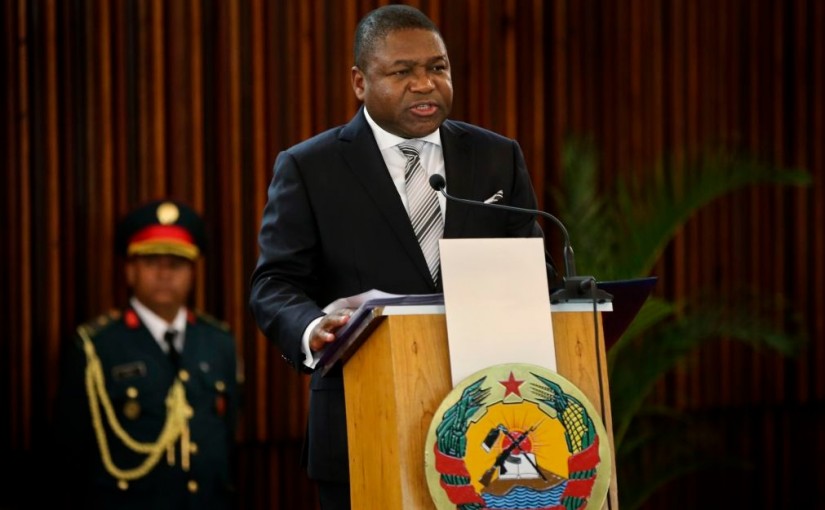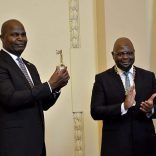Mozambique: President Chapo begins working visit to Maputo city
President Nyusi accuses Renamo of not wanting peace – Mozambique

File photo / President Filipe Nyusi seen here in a file photo
President Filipe Nyusi yesterday accused Renamo, the main opposition party, of destabilisation and not wanting peace and urged the country to stay united in order to overcome armed violence.
Marking the Day of Peace, the president said in a statement: “Even though it is clear that Renamo does not want peace, we can never tire of showing our abhorrence for the killing of our compatriots, and must remain open to changing the course of events.”
Speaking after placing a wreath in Heroes Square in Maputo, the Mozambican head of state said that the actions of the armed wing of the Mozambican National Resistance (Renamo) undermine the Comprehensive Peace Agreement signed on October 4 1992 between the Mozambican government and the main opposition party.
“Instead of celebrating, we are immersed in a reflection. At a time when the government of Mozambique has chosen the path of dialogue to end the war of destabilisation brought about by Renamo, we embody the will of the Mozambican people to find ways to resolve our differences,” he added.
Recalling that the civil war preceding the signing of the Peace Agreement cost more than a million lives, Nyusi said that the current military instability held hostage the country’s development efforts.
“The Comprehensive Peace Agreement signed in Rome showed the will of the government and the people to open a new development agenda, because peace is the most important condition for the pursuit of economic and social development,” the Mozambican president said.
Filipe Nyusi reiterated his readiness to meet with the leader of Renamo, Afonso Dhlakama, in pursuit of a definitive understanding to end the political and military crisis in the country.
The Peace Day ceremonies in Praça dos Heróis were again marked by the absence of Renamo representatives, with the main opposition party choosing to organise its own celebration at the organisation’s headquarters across the country.
On October 4, 1992, the then head of State of Mozambique, Joaquim Chissano and Afonso Dhlakama signed, in the Italian capital, Rome, the Comprehensive Peace Agreement ending 16 years of war.
Since the signing of the General Peace Agreement, Mozambique has had two periods of military instability, the first between 2013 and 2014, and the second following the refusal of Renamo to accept defeat in the general elections of 2014.
The main opposition party has conditioned the end of armed action on the government accepting its demand to govern in the six provinces where it claims victory in the 2014 general election.












Leave a Reply
Be the First to Comment!
You must be logged in to post a comment.
You must be logged in to post a comment.